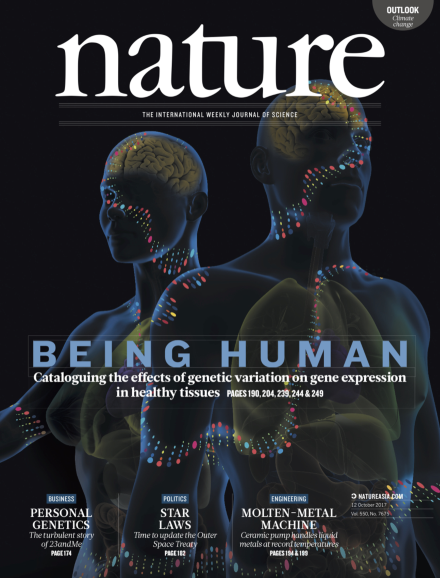Volume 550 Issue 7675, 12 October 2017
Editorial
World View
Seven Days
News
News Feature
Comment
Books & Arts
Correction
Correspondence
News & Views
Correction
Article
Letter
Technology Feature
Feature
Column
Futures
Outlook
-
Climate change
Nature Outlook:
-
Sea change
Nature Outlook:
-
Getting political
Nature Outlook:
-
The real climate debate
Nature Outlook:
-
We have the technology
Nature Outlook:

